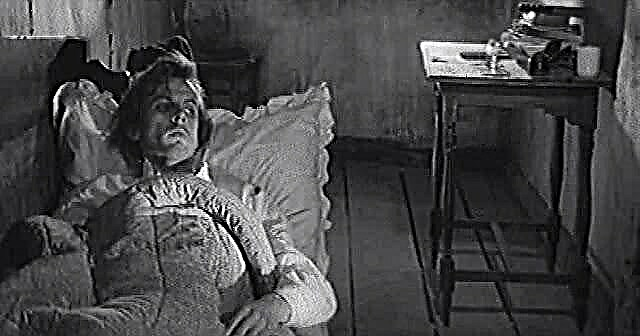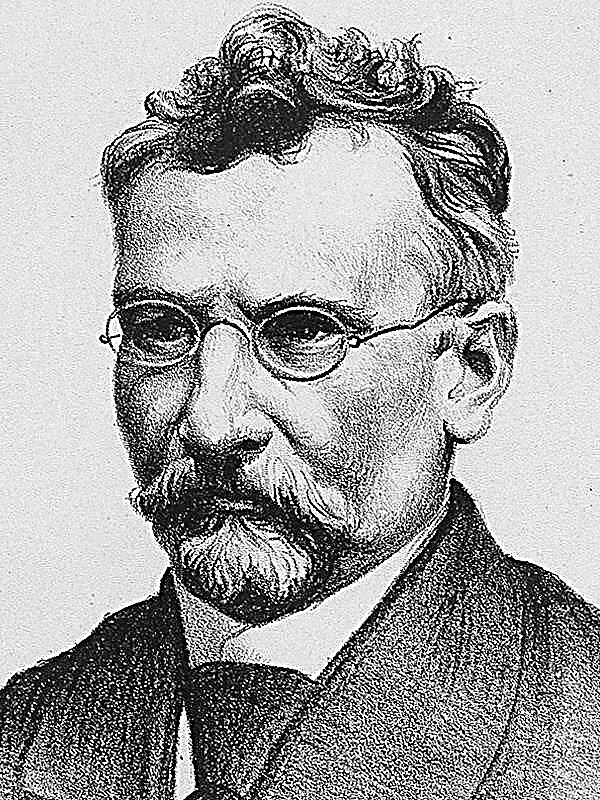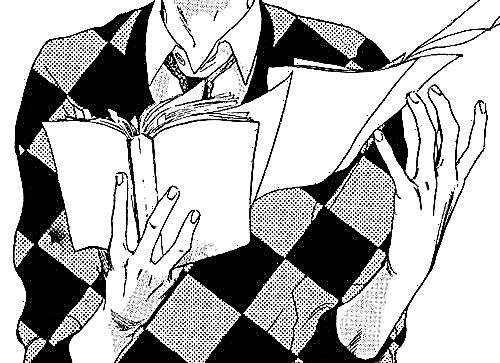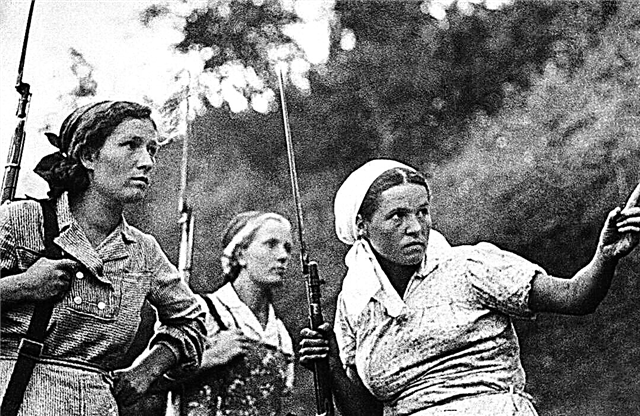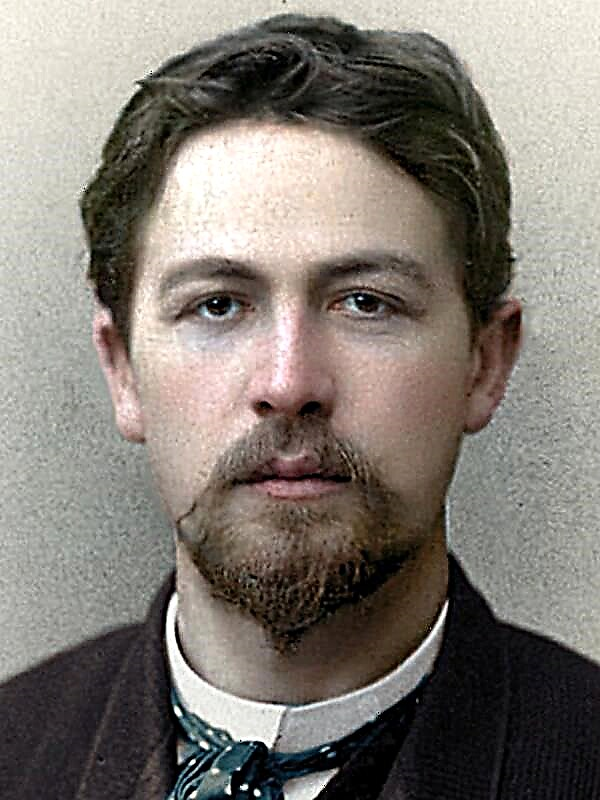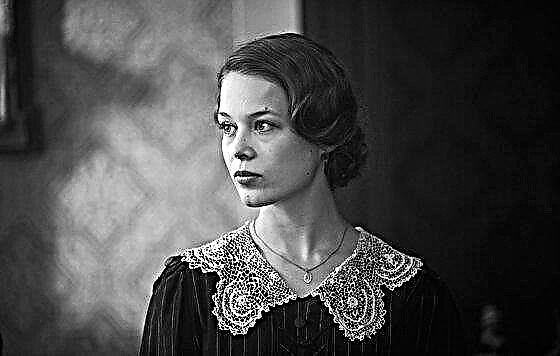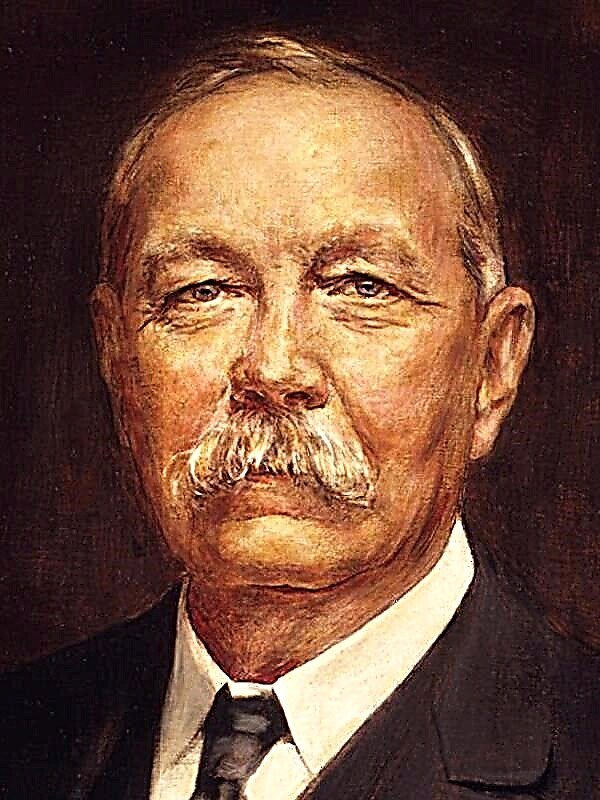The image of Lady Macbeth is well known in world literature. Shakespearean character was transferred to Russian soil by N.S. Leskov. His work “Lady Macbeth of Mtsensk County” is still popular and has many dramatizations and adaptations.
History of creation
“Lady Macbeth of Our County” - under this name the work first appeared in print in the Epoch magazine. Work on the first edition of the essay lasted about a year, from 1864 to 1865. The composition was finalized in 1867 after significant copyright corrections.
It was supposed that this story would open a cycle of works on the characters of Russian women: a landowner, a noblewoman, a midwife - but for a number of reasons the plan was not realized. “Lady Macbeth” is based on the plot of the widespread popular print “On the Merchant's Wife and Bailiff”.
Genre, direction
The author's definition of the genre is an essay. Perhaps Leskov emphasizes realism, the authenticity of the narrative with this designation, since this prosaic genre, as a rule, is based on facts from real life, is documentary. It is no coincidence that the first name of the county is ours; after all, so every reader could imagine this picture in his village. In addition, it is precisely the essay that is characteristic of the direction of realism, which was popular in Russian literature of that time.
From the point of view of literary criticism, “Lady Macbeth of Mtsensk County” is a story, as indicated by the complicated, eventful plot and composition of the work.
Leskov’s essay has a lot in common with Ostrovsky’s drama “The Storm”, written 5 years before “Lady ...” The fate of the merchant’s wife worried both authors, and each of them offers its own version of the development of events.
Essence
The main events unfold in a merchant family. Katerina Izmaylova, while her husband went away on business, has an affair with clerk Sergei. The father-in-law tried to stop debauchery in his own house, but paid for it with his life. The spouse who returned home was also waiting for a “warm welcome”. Having got rid of interference, Sergey and Katerina enjoy their happiness. Soon the nephew of Fedya came to visit them. He can claim the inheritance of Katerina, because lovers decide to kill the boy. The scene of strangulation is seen by passers-by that came from the church.
Killers are sentenced to hard labor. Sergey didn’t expect such an outcome, his feelings for Katerina cool down, and he begins a relationship with another convict Sonetka. Katerina is unable to bear the betrayal of her lover: during the ferry crossing, she pounces on her rival, “like a strong pike on a soft-feathered carpentry,” and dies with her. All that is described in the book, you can learn from brief retelling.
The main characters and their characteristics
- Katerina Izmailova - a very complex image. Despite countless crimes, she cannot be considered an exclusively negative character. Analyzing the character of the main character, one cannot ignore her unjust accusations of infertility, the contemptuous attitude of her father-in-law and husband. All the atrocities were committed by Katerina for the sake of love, only in her did she see salvation from that nightmarish life, which was filled only with cowardice and boredom. This is a passionate, strong and gifted nature, which, unfortunately, revealed only in crime. At the same time, we can note the statement, cruelty and unscrupulousness of a woman who raised her hand even to a child.
- Prikazchik Sergey, experienced "girl", cunning and greedy. He knows his merits and is familiar with female weaknesses. It was not difficult for him to seduce a wealthy mistress, and then deftly manipulate her, if only to enter into the ownership of the estate. He loves only himself, and only uses female attention. Even in hard labor, he seeks amorous adventures and buys them at the cost of the sacrifice of his mistress, asking her for what is valued in custody.
- Husband (Zinovy Borisovich) and father-in-law of Katerina (Boris Timofeevich) - Typical representatives of the merchants, callous and rude philistines who are engaged only in enrichment. Their severe moral principles rest only in the unwillingness to share their good with anyone. Spouse does not value his wife, just does not want to give his thing. And his father, too, is indifferent to the family, but he does not want unflattering rumors circulating in the district.
- Sonnet. Sly, dodgy and flirty convict who does not mind having fun even in hard labor. Frivolity is in common with Sergey, for she never had firm and strong attachments.
Topics
- Love is the main theme of the story. It is this feeling that pushes Katerina to monstrous killings. At the same time, love becomes for her the meaning of life, while for Sergey this is just fun. The writer shows how passion can not exalt, but humiliate a person, plunge it into the abyss of vice. People often idealize feelings, but the danger of these illusions cannot be ignored. Love is far from always an excuse for a criminal, a liar and a murderer.
- A family. Obviously, not for love, Katerina married Zinovy Borisovich. Mutual respect and consent did not arise between spouses over the years of family life. Katerina heard only reproaches addressed to her, she was called the “step-mother”. The contractual marriage ended tragically. Leskov showed what neglect of interpersonal relationships within the family leads to.
- Revenge. For the orders of that time, Boris Timofeevich quite rightly punishes a lustful clerk, but what is Katerina’s reaction? In response to bullying her lover, Katerina poisons her father-in-law with a lethal dose of poison. The desire to take revenge drives the rejected woman in an episode at the crossing, when the current convict attacks the home of Sonnetka.
Problems
- Boredom. This feeling arises among the heroes for a number of reasons. One of them is lack of spirituality. Katerina Izmailova did not like to read, and there were practically no books in the house. Under the pretext, ask for a little book, and Sergei gets into the mistress on the first night. The desire to bring some diversity into a monotonous life is becoming one of the main motives for treason.
- Loneliness. Most of the days Katerina Lvovna spent all alone. The husband had his own affairs, only occasionally did he take her with him, going on a visit to his colleagues. There is no need to talk about love and mutual understanding between Zinovy and Katerina. This situation was aggravated by the absence of children, which saddened the main character as well. Perhaps if her family paid more attention, affection, participation, then she would not have answered betrayals to close people.
- Self-interest. This problem is clearly indicated in the image of Sergey. He masked his selfish goals with love, trying to arouse pity and sympathy for Katerina. As we learn from the text, the negligent clerk already had the sad experience of courting a merchant's wife. Apparently, in the case of Katerina, he already knew how to behave and what mistakes to avoid.
- Immorality. Despite the ostentatious religiosity, the heroes do not stop at anything in achieving their goals. Treason, murder, attempt on the life of a child - all this fits into the head of an ordinary merchant and her accomplice. Obviously, the life and customs of the merchant province corrupts people secretly, because they are ready to commit sin, if only no one would know about it. Despite the strict patriarchal foundations prevailing in society, heroes easily commit crimes, and their conscience does not torment them. Moral issues open up before us the abyss of falling personality.
The main idea
Leskov warns with his work what tragedy can lead to a ossified patriarchal life and lack of love and spirituality in the family. Why did the author choose a merchant environment? In this class there was a very large percentage of illiteracy, merchants followed centuries-old traditions that could not fit into their modern world. The main idea of the work is to point out the catastrophic consequences of lack of culture and cowardice. The lack of internal morality allows heroes to commit monstrous crimes, which can only be redeemed by their own death.
The actions of the heroine have their own meaning - she rebels against conventions and boundaries that prevent her from living. The bowl of her patience is full, and she does not know how to draw it. Ignorance is compounded by debauchery. And so the very idea of protest is vulgarized. If at first we empathize with a single woman who is not respected and insulted in her own family, then in the end we see a completely decomposed personality who has no way back. Leskov urges people to be more selective in choosing means, otherwise the goal is lost, but sin remains.
What does it teach?
"Lady Macbeth of Mtsensk" teaches one main popular wisdom: you cannot build your happiness on someone else's misfortune. Secrets will be revealed, and you will have to answer for what you have done. Relations created through the lives of others, end in treason. Even a child, the fruit of this sinful love, becomes useless to anyone. Although it used to seem if Katerina had children, she could have been quite happy.
The work shows that immoral life ends in tragedy. Despair takes over the main character: she is forced to admit that all the crimes committed were in vain. Before her death, Katerina Lvovna tries to pray, but in vain.




